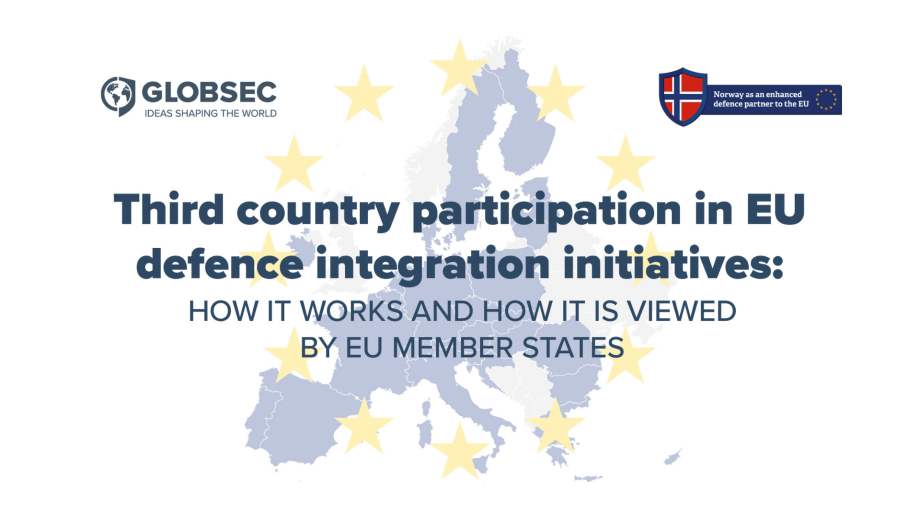EU Defence Partnerships: How it works and how it is viewed by EU member states? - Recap

On 9 December 2020, GLOBSEC in cooperation with the Norwegian Institute of International Affairs (NUPI) held a joint online closed-door roundtable to present the policy paper “Third country participation in EU defence integration initiatives: How it works and how it is viewed by EU member states”, which subsequently served as a discussion stimulus.
The key topics discussed were how to include and involve third countries in the EU defence integration, the potential ways to structure cooperation with the third countries, and Norwegian participation in the EU defence integration processes. An important element of the discussion was also the concept of European strategic autonomy, which has recently become a centre of debates in the area of EU defence and security projects. The question that remains yet unclear is which third countries will cooperate in these projects in the future.
In international relations, Trump´s administration is still lingering. However, the fact that the US continues to move away from the European Union and is less involved in European security is undeniable and unstoppable. The cooperation between the EU and the UK after Brexit is also questionable. The European Union will want to continue cooperating with the UK on security and defence as much as possible, however, a common agreement remains still unclear.
When it comes to the EU member states, most of them remain inclusive towards the possibility of participating in emerging EU defence initiatives and structures of like-minded states (such as Norway, Canada, the US, the UK, etc.). However, they are not so open, towards countries, which do not share ‘the values on which the EU is founded’ or do not ‘respect the principle of good neighbourly relations with the Member States. It is therefore likely that the EU will create three or even four categories of partnership, each marked by different privileges such as access to the EU internal market and possibly – though more controversial – access to some EU funding from the EU defence budget.
Finally, the need for deeper cooperation of the EU with Norway, in the area of security and defence, has been identified as essential. Their relationship is constantly evolving. Norway has, as its future goal, declared more EU assistance to play a greater role in security matters. Norway sees good prospects for intensified dialogue across the Atlantic and supports recent EU decisions to open up the possibility of non-EU countries to participate in EDF and PESCO projects. They see these opportunities as a way to broader the agenda of cooperation, as for instance in the area of the defence industry. The discussion has concluded that Norway is a great example of the European Union's ability to work with third countries that share a common stance and values.
This discussion has brought together key representatives from various organizations such as the European Commission, the Political and Security Committee, Ministries of Defence, and Ministries of Foreign Affairs. Additionally, experts from various think tanks such as the Polish Institute of International Affairs, the Norwegian Institute of International Affairs, Swiss and Euro-Atlantic Security Team, were also represented.